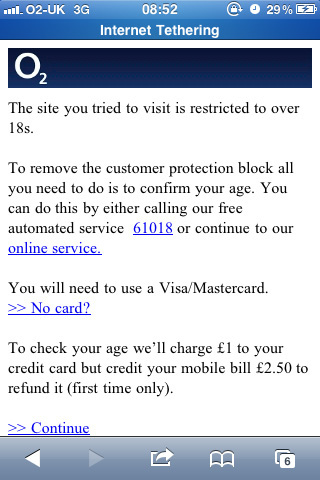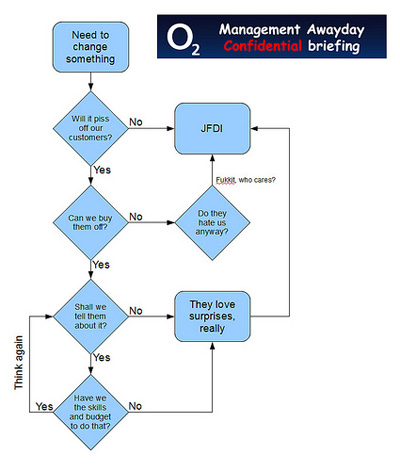Jul 26, 2011 9
If you care about your customers
This is just a little thing. It’s not even a digital thing.
It’s a real-life thing.
You want your customer to send you something. Payment maybe? Or a returned product? Or a nice, complimentary letter about how customer-focused you are?
And you give them an address that looks like this:
Kingston Technology Europe Limited
Kingston Court
Brooklands Close
Sunbury on Thames
Middlesex, TW16 7EP
United Kingdom
Now, we may know in the rational bit of our heads that there is a ton of redundant information here. Stuff that whether included or omitted will have absolutely no bearing on whether the damn thing arrives where it should. (I just love that “Limited”.)
But being the dutiful, well-trained creatures that we are, we write it all out, don’t we? (I confess, I do.) Cramping letters into the available space, with teacher’s voice in our head telling us that if the package goes astray, and we hadn’t put hyphens in the right place (or worse, omitted them as in the Sunbury example above) then we had only ourselves to blame?
But if you know (or could establish with a little bit of effort) that stuff sent to:
Kingston
Brooklands Close
Sunbury
TW16 7EP
would get there just as effectively, then why wouldn’t you? Really?
That’s 10 of 16 character strings removed. 63%.
OK, you can keep the UK if you’re really not sure where something will be sent from. But you probably know, don’t you?
A little more thought. It’s the small things. Remember that stuff about “unstructured conversations”? The closer you can get to an easy vernacular, the more people are going to like you. And that’s going to make you more profitable.
Update: later the same day…
Different issue, different company.
“Hi, thanks for calling. Can I have your membership number?”
–erm, sorry, I haven’t got it anywhere to hand.
“Ooh, that’s ok, just give me your postcode, date of birth and first line of your address”
–ok. (and I do)
“Right you are: your membership number is AB123456789. Please can you use that next time you call us?”
–why? it seemed much more straightforward for me just to tell you things I always know, like my date of birth and address.
“Ah well you see, it’s easier for us you see if you tell us your membership number [SHE ACTUALLY SAID THIS] that way we don’t have to go looking up addresses and dates of birth and so on, you see. It’s…quicker.”
–is it? is it really? what you did seemed pretty fast.
“Thank you Mr Clarke. Now, why did you call us?”
–hang on just a moment though. imagine I had called you and given you my membership number, which I’d either had to memorise, write down somewhere, or look up in a big pile of papers under my desk while on the call to you. imagine I’d done that.
“Yes?”
–would you need to ask me anything else? I mean, ask me any other information about me? you know, to make sure you were talking to the right person and all that.
“Erm, yes”
–what would you need to ask me?
“Can we just get on with-”
–no, I’m sorry, we can’t. What else would you ask me?
[tetchy voice] “Do you want me to help you or not?”
–c’mon, get it over with
[tiny voice] “Address and date of birth”
–thank you
“You’re welcome”




